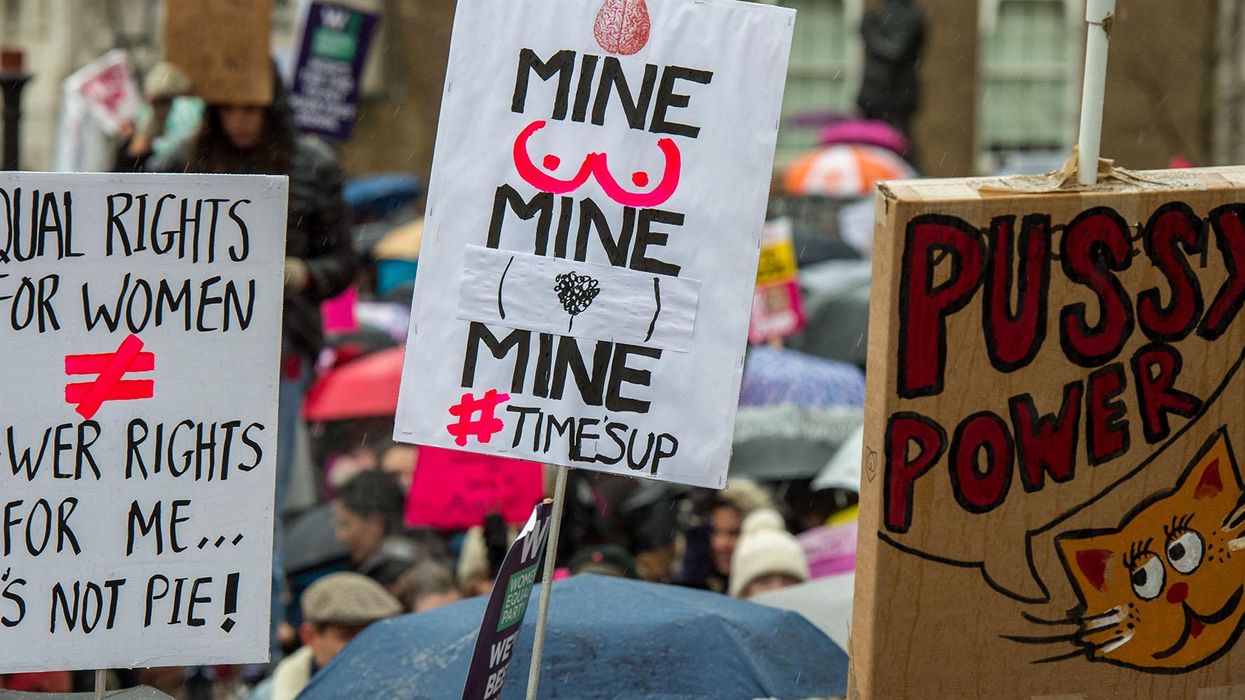News
Mimi Launder
Mar 04, 2018

Picture:
Getty Images
In the closing months of last year, a global reckoning rose over sexual harassment and assault, sparking accusations against powerful men in a variety of industries.
The cascade of allegations started with Hollywood heavyweight Harvey Weinstein in October 2017. Then, in a seemingly unending wave, it dragged down with it Kevin Spacey and has seen dozens of other prominent men accused of sexual misconduct, including James Franco, filmmaker Paul Haggis and Broadway legend Ben Vereen.
Now that these stories are reaching the headlines, two crossover yet distinct movements have been borne – and, given the fury and scope of the reaction to the various assault allegations, you'd be forgiven for getting them mixed-up.
Here's the low-dow on those two simple hashtags.
What is #MeToo?
Hollywood actress Alyssa Milano first sparked the #MeToo movement on social media, after she wrote:
If all the women who have been sexually harassed or assaulted wrote ‘Me too’ as a status, we might give people a sense of the magnitude of the problem.
But before that, there was the late Recy Taylor, a black woman who was kidnapped and raped by six white men in 1944. She spoke out about it, but she never saw any of them punished. Earlier this year, her memory was invoked in the context of #MeToo by Oprah Winfrey, as she accepted the Cecil B DeMille award at the Golden Globes.
Then there was Tarana Burke, the woman who started a campaign to raise awareness around sexual assault in underprivileged communities in 2006 – and called it Me Too, long before the hashtags.
Before them, there were countless more.
Under the banner of #MeToo, women who have long been fighting to be heard have used it to speak up throughout Hollywood, the US and internationally – and perpetrators are beginning to face real consequences.
Social media has been flooded with stories of harassment and assault, an illustration of the scale of the problem that hit hearts far harder than statistics ever could. Sexual harassment has been a pressing issue for years; the revelations around Weinstein just burst the bubble.
What is Time's Up?
As 2017 gave way to 2018, a group of more than 300 leading women in Hollywood kicked off a new movement in a letter published in the New York Times. They wrote:
The struggle for women to break in, to rise up the ranks and to simply be heard and acknowledged in male-dominated workplaces must end; time’s up on this impenetrable monopoly.
Called Time's Up, the movement was announced with a passionate pledge to clamp down on the culture of silence and predation that is rife in the film industry.
But it is more than that. It also promises support the long-forgotten plights of working-class women – a criticism levelled at the #MeToo movement was that it concentrated too much on allegations targeted at prominent men in the upper echelons of Hollywood. Sexual harassment effects just about every other industry across the globe, particularly women of colour or those who work low-paid jobs.
The movement was inspired not just by celebrity stories, but by a letter of solidarity sent in November 2017 from the Alianza Nacional de Campesinas, an organisation of farmworker women.
Half of women working the restaurant industry experienced "scary" or "unwanted behaviour", according to a 2014 report. Around 40 percent of women in the fast-food industry have experienced unwanted sexual attention on the job, according to a 2016 report. Women of colour face harassment and assault at higher rates than white women.
In response to this, the Time's Up website promises:
TIME’S UP is a unified call for change from women in entertainment for women everywhere.
From movie sets to farm fields to boardrooms alike, we envision nationwide leadership that reflects the world in which we live.
Within Time's Up, which is run by volunteers and compromised of groups, there are members focusing on ensuring the voices of women of colour and LGBT+ women are equally heard alongside that of white, straight women.
Practically, this means offering legal aid to survivors of sexual harassment, fighting to increase the number of women in leadership across all industries and create legislation that better penalises sexual misconduct.
At the Golden Globes earlier this year, Time's Up used the red carpet to speak out against gender and racial inequality, and to raise awareness about their movement.
Time's Up members include: Eve Longoria, Ashley Judd, Natalie Portman, Emma Stone, America Ferrera, Kerry Washington, Rashida Jones, Avu DuVernay, Reese Wetherspoon and many, many more.
Reese Witherspoom told the New York Times:
We have been siloed off from each other.
We're finally hearing each other, and seeing each other, and now locking arms in solidarity with each other, and in solidarity for every woman who doesn't feel seen, to be finally heard.
Top 100
The Conversation (0)













